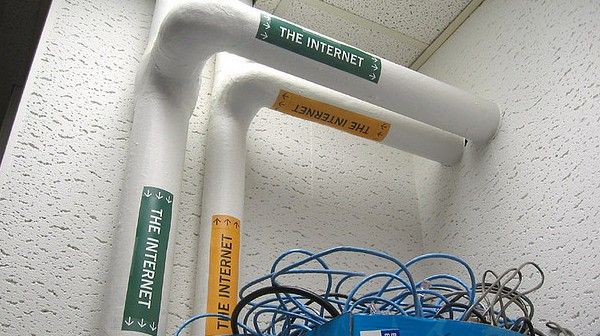Found on the Internets …

Judge blocks early voting cuts in Ohio
A federal judge has blocked Ohio’s cuts to early voting and its elimination of same-day voter registration-a major voting rights victory in the nation’s ultimate presidential battleground state.
Judge Peter Economus ruled Thursday that the cuts violated the Voting Rights Act’s ban on racial discrimination in voting, as well as the Equal Protection clause of the U.S. Constitution. He issued an injunction barring them from going into effect before the November election, and directed Ohio Secretary of State Jon Husted to add a second Sunday of early voting.[…]
Voting rights advocates cheered.
“This ruling will safeguard the vote for thousands of Ohioans during the midterm election,” said Dale Ho, director of the American Civil Liberties Union’s Voting Rights Project, which brought the case. “If these cuts had been allowed to remain in place, many voters would have lost a critical opportunity to participate in our democratic process this November. This is a huge victory for Ohio voters and for all those who believe in protecting the integrity of our elections.”
“Today’s outcome represents a milestone in our effort to continue to protect voting rights even after the Supreme Court’s deeply misguided decision in Shelby County,” said Attorney General Eric Holder, during a speech about the Justice Department’s investigation into the Ferguson, Missouri police department. The Justice Department had filed a supporting brief in the Ohio challenge.
Of course, Ohio’s Republican Secretary of State plans to appeal. We outnumber them and the only hope they have to remain in power is to disenfranchise us. Another reminder of why the presidency — and the Senate, where judicial nominations are confirmed — are so important.
Judge Finds BP Was ‘Reckless’ And Grossly Negligent In 2010 Deepwater Horizon Spill
A federal judge ruled Thursday that BP was grossly negligent in helping cause the Deepwater Horizon oil spill of 2010, and that the oil company is liable for 67 percent of the blame.
U.S. District Judge Carl Barbier said in his decision that BP’s conduct was “reckless,” while the conduct of Halliburton and Transocean – the other two companies involved in the spill – was “negligent.” While BP was 67 percent responsible for the spill, Transocean, an offshore drilling company that owned the Deepwater Horizon drilling rig, was 30 percent responsible, and Halliburton, the contracting company that was responsible for cementing the Macondo well, was only 3 percent responsible. […]
The ruling opens BP up to a fine of $18 billion – the maxiumum penalty under the Clean Water Act – which the company could be charged if Judge Barbier later rules that, as U.S. prosecutors say, the disaster spilled more than 4 million gallons into the Gulf. BP told the Wall Street Journal that it plans to appeal the decision.
The wheels of justice spin slowly but with good government and strong laws, people can often prevail in the courts.
More …